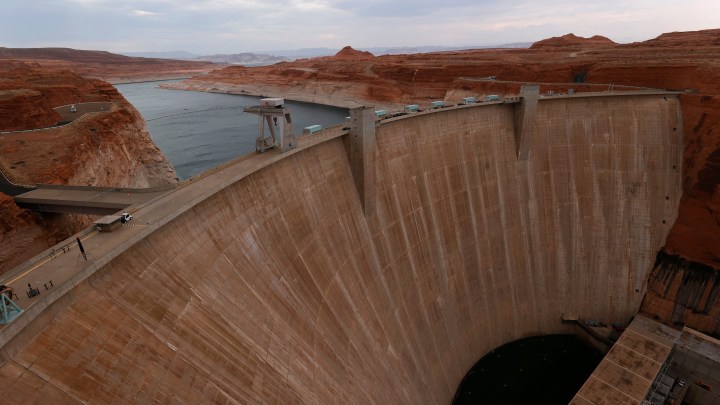
As Lake Powell’s water level drops, some in the West must turn to more expensive energy sources
As Lake Powell’s water level drops, some in the West must turn to more expensive energy sources

Water levels have reached a historic low at Lake Powell, the massive Colorado River reservoir that provides hydropower to seven western states via the Glen Canyon Dam.
And if what some scientists are calling a “megadrought” persists, it could continue to diminish that power source — turning a water crisis into an energy crisis.
Page, Arizona, has had a front-row seat to dwindling water levels at Lake Powell. “Well, it’s certainly disturbing,” said Bryan Hill, who heads up the city’s public power utility.
Page typically sources about half of its electricity from hydropower, he said. “So now what we’re having to do is go into more and more expensive resources to replace that power.”
Resources like oil and natural gas, which also produce more carbon emissions, said John Fleck, a water policy researcher at the University of New Mexico.
“In the midst of a problem caused by climate change, we’re losing one of our greenhouse gas-free power generation sources,” he said.
Hydropower accounts for about 7% of electricity generated in the U.S., but in western states that number is much higher. Plus, some rural and tribal communities rely on it disproportionately, Fleck added.
“They may see brownouts or blackouts.” And higher electricity bills, he said, as the west gets warmer and drier.
There’s a lot happening in the world. Through it all, Marketplace is here for you.
You rely on Marketplace to break down the world’s events and tell you how it affects you in a fact-based, approachable way. We rely on your financial support to keep making that possible.
Your donation today powers the independent journalism that you rely on. For just $5/month, you can help sustain Marketplace so we can keep reporting on the things that matter to you.


















